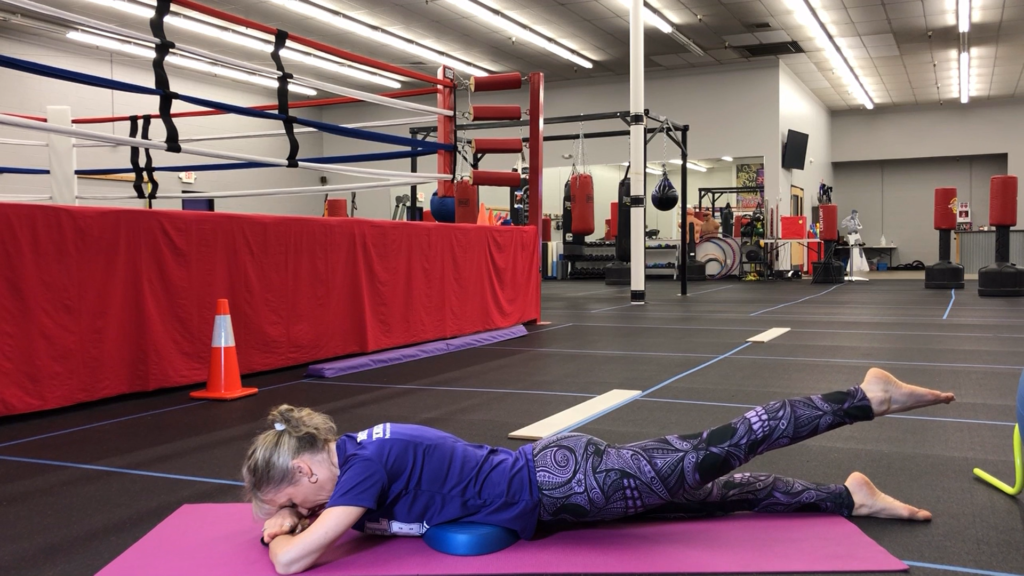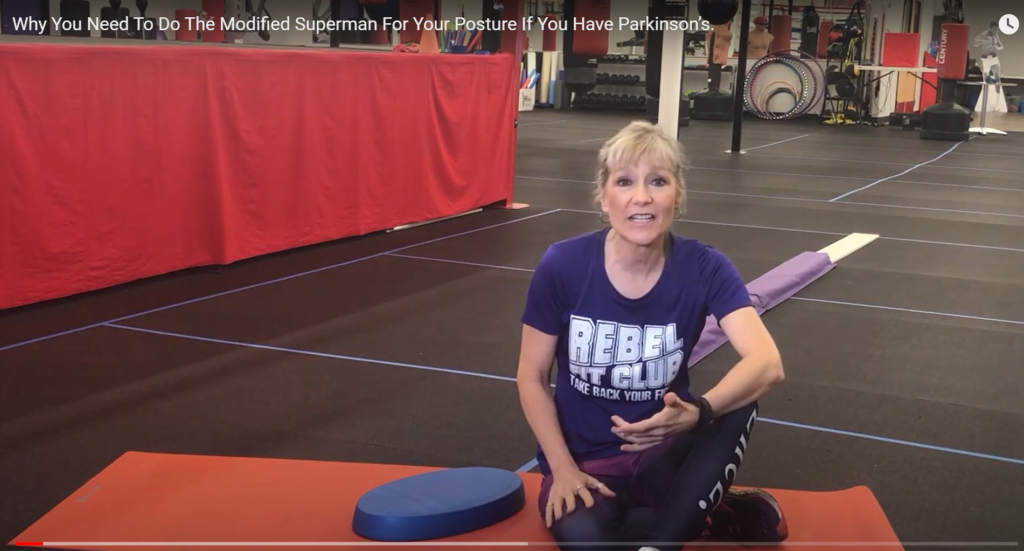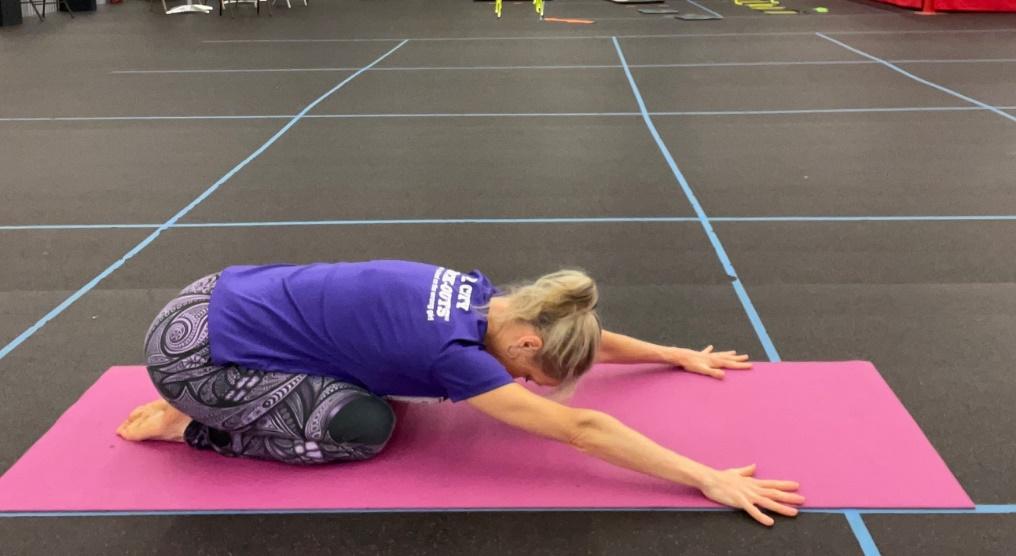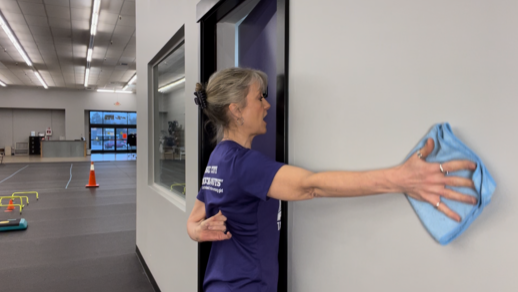Currently we have Posture School in session, which is a small-group, five-week training for people with Parkinson’s to learn exercises they can do every day to treat their stooped posture. Good posture does not just mean sitting or standing up straight! Rather, it’s about your ability to move around in different positions without slouching or slumping because your body is strong enough to maintain that.
The key to good posture is not just stretching, but strengthening your muscles so that you can stand upright against forces like gravity! The other key factor is learning how to properly sequence your shoulder blades (scapulas) to move correctly and efficiently.
Continue reading “Do This Shoulder Blade Wall Glide to Correct Parkinson’s Stooped Posture”




